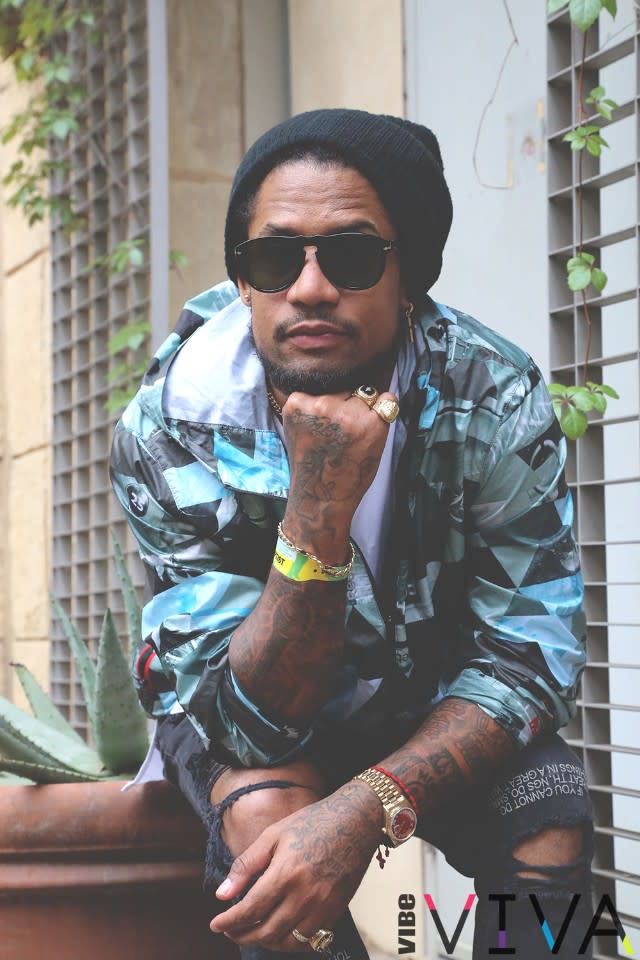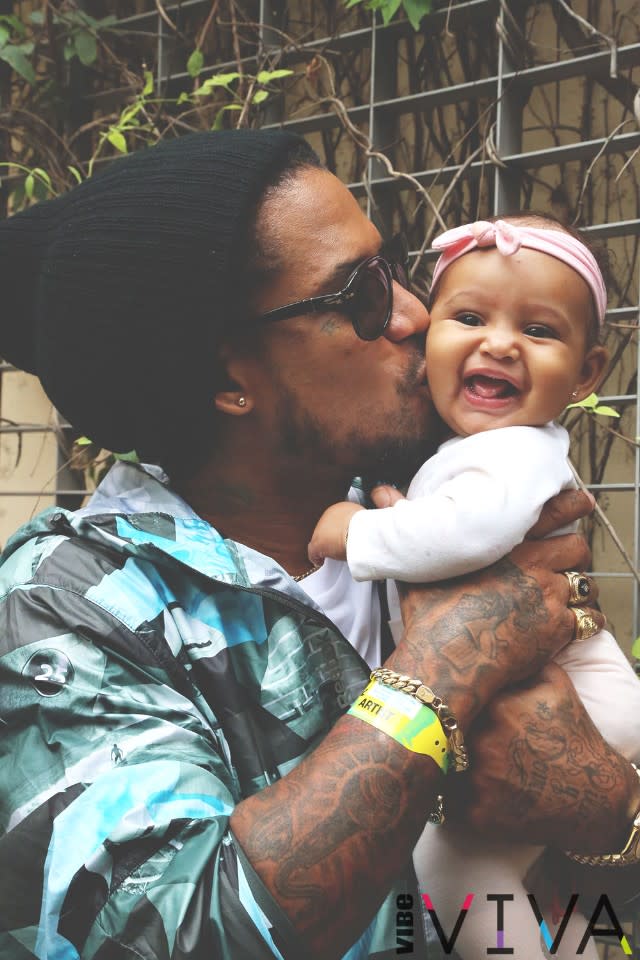After Taking On SXSW, Dominican Rapper Vakeró Is Ready For The Global Dancefloor
For the uninitiated, Vakeró is the award-winning rapper and seasoned vocalist responsible for helping establish what many call “urban music” in the Dominican Republic. Born Manuel Varet Marte, Vakeró became increasingly popular with the Dominican youth for ushering in a sound “rooted in hip-hop that takes from tropical and reggae.” His music, which also masterfully blends elements of punta, cumbia and merengue, is heavily influenced by a bevy of music giants, including all of Fania, original soul brother Bob Marley, and the singer of singers Hector Lavoe, with whom he most identified coming up a student of the game.
After years of being told “urban music” wouldn’t see longevity in a country traditionally known for its merengue and bachata, Vakeró has emerged an alchemist of sorts, having spun straw into gold if you will, using all the musical elements he grew up listening to – salsa, bolero, rap, et cetera, et cetera – to create a sound he can call his own. “At this point, I need to start giving my music its rightful name,” he quipped during an interview at South by Southwest 2017 in Austin, referring to the oversimplified and hackneyed term “urban.”
I was told over and over that it wouldn’t take off, that my music wouldn’t go anywhere. —Vakeró
Holding court inside a Texas BBQ joint alongside his wife (a dancer and college student also from the Dominican Republic) and seven-month-old baby, Vakeró sits directly across from me fairly quiet and pensive at first. A plate of spicy cornbread and a Jack Daniel’s later, Vakeró’s removed his cloak of presumed anxiety and opened up about all things music, the meaning of success, establishing himself in places like New York and the Caribbean, and his SXSW debut.
Credit: Marjua Estevez
VIBE Viva: You’re a long way from home. What’s Texas been like for you?
Vakeró: The people here are about the music. Everywhere I go, what I seem to find is that people are really about music, which is what I love most. Last night I felt the pressure to perform my best, whether there’s one person in the crowd, or 50,000. I went in with the determination to leave the public here with something heavy, for them to believe in my music. That’s the mentality that I came here with, hoping that leads to bigger and better things, musically.
What do you feel your South by Southwest debut will determine?
It’s an opportunity that any artist in my position would take and try turn it into something that manifests into something greater, you know? Part of that is really up to me. Which is why I came here with the mentality that I did—to perform my best, no matter what or for whom. The goal is for this to open another door that leads to something bigger. I believe a lot in myself and a lot in my band. I have an excellent team of Dominican musicians, who put in their all every single time we hit the stage together.
Would you say you’ve made it in the Dominican Republic?
We have an established career in the Dominican Republic; we’ve already been made official in our own country. The people know and love who we are. They know Vakeró the same way people around the world know Michael Jackson.

Credit: Marjua Estevez
What would you say are the differences between fans here and in your homeland?
Here, they’re a little crazy [Laughs]. There’s not a whole lot like back home or in New York, for instance. But the ones that are here are a little nuts.
Really? What do you mean?
There was this one guy who spotted me and yelled to me, “You son of a b***h! What are you doing so far away [from home]?!” [Laughs] And I told him I was trying to bring our Dominican flavor to Austin, Texas.
And New York?
In New York, thank god, we’re also pretty established. We have a considerable following. They always want me in New York. At this point, I decide when and how often I perform there, because I don’t think it’s good for my career to always be there. We’ve achieved great things with New York, and that’s what we want to do everywhere that Spanish is being spoken.
Credit: Marjua Estevez
However unfamiliar some parts of the world might be with you, you’ve actually been doing this for a long time. What’s been you’re greatest achievement yet?
What we call “urban music” is done in Puerto Rico, in Panama, in Venezuela—you name it. But in the Dominican Republic, I was told over and over that it wouldn’t take off, that my music wouldn’t go anywhere, and now we have years in this genre.
How difficult was it to campaign for a kind of music no one really believed in?
We were adopting a genre that was not traditionally a part of our culture. It was incredibly difficult in the beginning, especially in Santo Domingo where people really opposed it. The Dominican is known for merengue and bachata. But we were able to achieve what many said couldn’t be done. The Dominican Republic is no longer just known for its merengue or bachata, we can now talk about urban music, which is the genre I represent.
And what exactly is that?
An original sound rooted in hip-hop that also takes from tropical and reggae. It’s a fusion, you know? You’ll find reggae, cumbia, punta, hip-hop, merengue—it’s a beautiful mix. At this point, I need to start giving my music its rightful name. We’ll have to figure out what that will be [Laughs]. But for now, so that the public is comfortable and the people easily digest it, we call it “urban.”

Credit: Marjua Estevez
What’s been the greatest testament to your success?
The media. And the social networks completely changed the game for us. This is a business, and you need a lot of money to successfully run it. And there are lot of propositions out there that don’t have a lot of money, but they come equipped with the necessary notoriety and acceptance off the strength of their online presence. So the game has changed a lot for us, thanks to the Internet.
How does it all make you feel?
Me? I’m happy. I’ve accepted this as my calling and enjoy doing what I do. I do it all with love and passion. But at this particular point in my career, I especially understand that it’s also a business.
What’s your ambition?
Man, I haven’t really thought about that… My kids, my wife—I want to leave them with everything they need, everything they could ever want. Do I want to be rich? No, but I do want them to have it all. And I’ll work for it, because I don’t like handouts, I work for everything I have. I want my family to do that too, to work and strive for what they want in this life, because what comes easy will go easy, too. The fruits of your labor—those are the fruits you most enjoy.
This interview has been translated from Spanish to English, and edited for clarity.
—
This post After Taking On SXSW, Dominican Rapper Vakeró Is Ready For The Global Dancefloor first appeared on Vibe.

